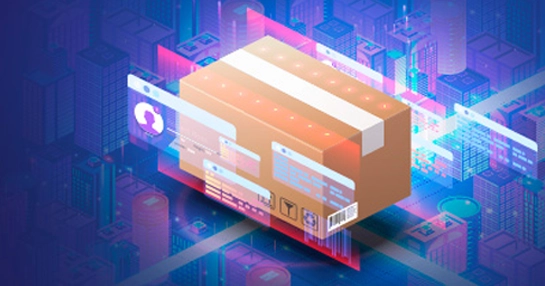-
GEP Software
-
- Procurement Software
- Direct Procurement Software
- Indirect Procurement Software
- Unified Source-to-Pay
- Source-To-Contract Software
- Procure-to-Pay
- Midsize & High Growth Enterprises
- Key Capabilities
- Spend Analysis
- Sourcing
- Contract Lifecycle Management
- Supplier Lifecycle Management
- Third-Party Risk Management
- Purchasing
- Payments
- Data Analytics and Reporting
- Do more with GEP SMART
- Intake Management & Orchestration
- Intelligent Category Management
- Tail Spend Management
- Cost Data & Analytics (GEP COSTDRIVERS)
- AI-First Supply Chain Management
- Supply Chain Visibility and Execution
- Logistics Visibility
- Inventory and Warehouse Management
- GEP Multienterprise Collaboration Network
- Supply Chain Control Tower
- Field Services
- Supply Chain Collaboration & Planning
- Supply Chain Planning
- Purchase Order Collaboration
- Forecast Collaboration
- Capacity Collaboration
- Quality Management Software
- Should-Cost Modeling
- Direct Material Sourcing
-
-
GEP Strategy
-
GEP Strategy
Unrivaled supply chain and procurement expertise + the transformative power of AI
Supply Chain Consulting
- Environmental, Social and Governance
- Sustainability Consulting Services
- Socially Responsible Sourcing
- Scope 3
- Demand and Supply Chain Planning
- Collaborative Planning
- Source To Contract
- Procure To Pay
- Inventory Strategy & Management
- Operations & Manufacturing Excellence
- GEP Total Inventory Management Solution
- Network Strategy & Optimization
- Warehousing & Transportation Management
-
-
GEP Managed Services
-
GEP Managed Services
World-class skills, experience and know-how — amplified by the power of AI
-


Bridging the AI-Procurement Gap: Tips for High-Growth Firms
Growing fast? Then you already know — procurement can either keep up or hold you back. In this episode, we explore how fast-growing companies are rethinking procurement to move from a transactional function to a strategic growth engine.
The discussion uncovers how AI-driven tools are helping teams automate processes, improve decision-making, and align procurement directly with business objectives.
From supplier selection to contract management, the episode highlights how smarter systems are transforming procurement into a proactive, insight-driven partner in scaling the business.
What You’ll Hear:
- How AI and automation are turning procurement from reactive to strategic — powering smarter, faster decisions
- Why flexibility and adaptability are essential for procurement systems across industries like construction, biotech, and legal
- The critical shift high-growth companies must make: modernizing procurement to reduce risk, unify operations, and support sustainable expansion
Listen now to learn how high-growth companies are modernizing procurement to scale smarter, faster, and stronger.
This is a audio recording of a recent podcast.
PODCAST SUMMARY
1. Procurement Isn’t Just About Savings Anymore — It’s a Growth Engine
In this episode, the conversation dives into how procurement is shifting — especially for companies that are growing fast. The old model, where procurement was all about saving money and pushing paperwork, just doesn’t hold up anymore. Today, procurement has to scale with the business — and that means doing things smarter, not just faster.
AI plays a central role here. It’s not just automating tasks; it’s helping procurement teams make better decisions. Take supplier selection, for example. With the right tools, companies can assess supplier performance, flag risks early, and track contract renewals — all without needing someone to manually check every detail.
Same goes for contracts. AI can monitor terms, alert teams to compliance issues, and give a full picture of supplier performance. So instead of being reactive, procurement becomes proactive and strategic. That shift — from operational to strategic — is where the real value is. It's not about cutting corners; it's about enabling growth, supporting the business, and staying resilient in a fast-moving market.
2. Every Industry Has Different Needs — and Procurement Has to Flex
The hosts also highlight something often overlooked: procurement looks different depending on the industry you’re in. And if your systems can’t flex to meet those needs, they’ll hold you back.
Take construction, for instance. Everything needs to be tracked by project code. In biotech, it’s all about speed — getting materials fast so R&D doesn’t stall. Legal firms, meanwhile, need ultra-precise expense allocation for different matters or clients.
That diversity means procurement systems need to be adaptable and scalable, not rigid or one-size-fits-all. The speakers talk about how modern platforms can centralize data, automate processes, and still give teams the flexibility they need. Whether it’s working across departments or across countries, a smart system should help people collaborate better, not create more work.
And that’s the key. It’s not just about tech — it’s about building procurement processes that actually support the way your business operates. Especially for fast-growing companies, that kind of flexibility can make the difference between scaling smoothly and running into serious friction.
3. High-Growth Companies Are at a Turning Point — Modernize or Get Left Behind
The final section of the podcast drives home a clear message: high-growth companies are facing a choice. Either they transform procurement to meet the moment — or they risk falling behind.
Automation is important, yes. But the bigger picture is about strategy. It’s about aligning procurement with business goals, reducing risk, improving visibility, and creating a structure that supports continued growth. And you can’t do that with siloed systems or spreadsheets.
The hosts outline a few key areas to focus on:
- Smarter automation — not just doing things faster, but making more informed decisions
- Better risk management — with AI that flags issues early, not after it’s too late
- Unified operations — systems that bring everything (and everyone) together
- Procurement as a partner in growth — not a gatekeeper, but a strategic asset
Ultimately, the episode encourages companies to think bigger. Procurement isn’t just a supporting function anymore — it’s a driver of resilience, agility, and growth. And the companies that recognize that now? They’ll be the ones out in front.
TO LISTEN, Please Enter your EMAIL
JUST A FEW MORE THINGS ABOUT YOU









